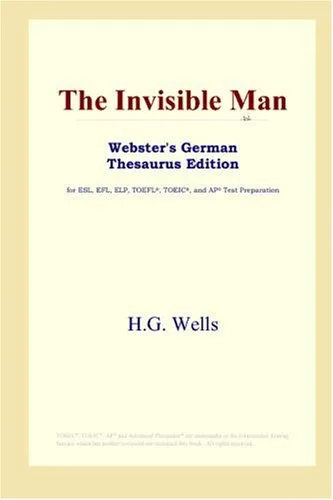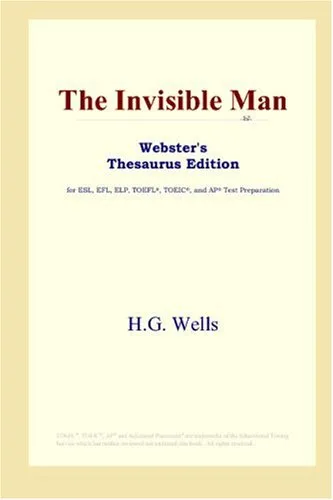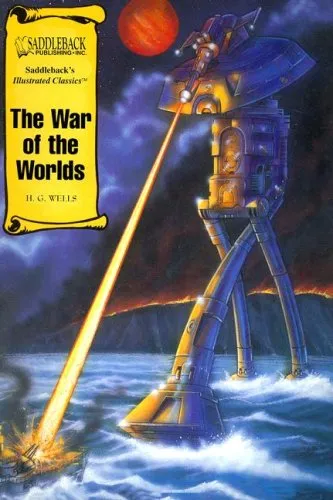The Invisible Man
3.6
Reviews from our users

You Can Ask your questions from this book's AI after Login
Each download or ask from book AI costs 2 points. To earn more free points, please visit the Points Guide Page and complete some valuable actions.Related Refrences:
Persian Summary
Introduction
Welcome to the enigmatic world of "The Invisible Man," a compelling novella crafted by the illustrious science fiction writer H.G. Wells. First published in 1897, this classic tale delves into the realms of science and human nature, challenging both the protagonist and the reader to confront the consequences of unchecked ambition and isolation.
Detailed Summary of the Book
The story begins with the arrival of a mysterious man in the quiet English village of Iping. Covered in bandages and possessing a terse demeanor, he introduces himself as Griffin, an experimenter in optics and general alchemy. Griffin's peculiar appearance and secretive behavior soon become the talk of the town, provoking both curiosity and suspicion among the villagers.
As the narrative unfolds, the reader learns of Griffin's groundbreaking discovery — he has rendered himself invisible through a series of scientific experiments with light refraction. However, this remarkable scientific feat comes at a great cost. Stripped of his visibility, Griffin is also stripped of his humanity, plunging into a state of loneliness and moral ambiguity.
Driven by desperation, Griffin seeks refuge in the home of a former schoolmate, Dr. Kemp. Here, he reveals his master plan to unleash a "Reign of Terror," using his invisibility to dominate and control. Kemp, perturbed by Griffith's sinister intentions, must weigh his loyalty against the fate of society. This moral dilemma sets the stage for a thrilling culmination, as Griffin's invisible presence spirals into chaos, leading to an unforgettable conclusion.
Key Takeaways
"The Invisible Man" is a profound exploration of the ethical boundaries of scientific discovery and the human condition. Through Griffin's tragic journey, Wells presents the dual-edged sword of technological advancement — its potential for groundbreaking achievements and its capacity for destructive consequences when wielded without ethical consideration.
- The novel serves as a cautionary tale about the pursuit of knowledge without moral restraint, highlighting the inherent responsibility that comes with power.
- Griffin's character arc emphasizes the importance of empathy and human connection, illustrating the isolation and dehumanization that result from self-imposed exile.
- The story poses questions regarding the nature of identity and what it means to be seen, both literally and figuratively, in a world that often confuses physical presence with moral significance.
Famous Quotes from the Book
Wells' novella is imbued with poignant and thought-provoking quotes that resonate with readers long after the final page is turned:
"Great and strange ideas transcend the limits of ordinary logic."
"It's amazing what clever people get away with."
Why This Book Matters
"The Invisible Man" remains a pivotal work in the canon of science fiction literature, demonstrating Wells' mastery of blending scientific imagination with profound societal commentary. Its relevance persists as modern advancements in technology and ethics continue to intersect, prompting reflective discourse on the confluence of innovation and humanity.
This work not only entertains but also challenges its audience to consider the implications of scientific progress and the essential nature of our social ties. It is a timeless exploration of man's quest for power, revealing the potential for both greatness and ruin that lies within us all.
Free Direct Download
You Can Download this book after Login
Accessing books through legal platforms and public libraries not only supports the rights of authors and publishers but also contributes to the sustainability of reading culture. Before downloading, please take a moment to consider these options.
Find this book on other platforms:
WorldCat helps you find books in libraries worldwide.
See ratings, reviews, and discussions on Goodreads.
Find and buy rare or used books on AbeBooks.







